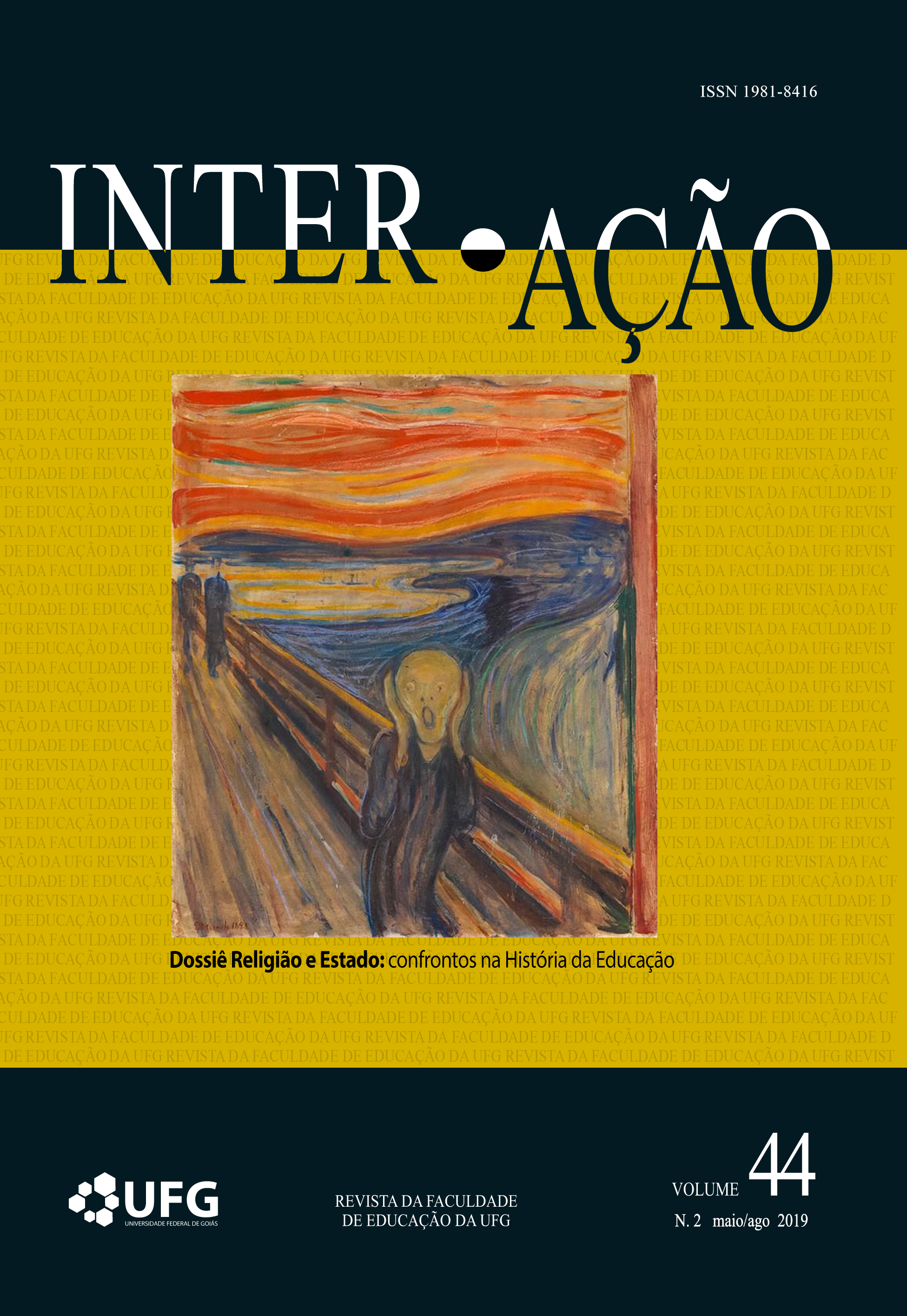LEIGOS E CATÓLICOS EM DISPUTA PELA ESCOLA NOVA NO BRASIL NA DÉCADA DE 1930
DOI:
https://doi.org/10.5216/ia.v44i2.55854Resumo
No Brasil, as ideias da Escola Nova foram apresentadas como propícias a um país moderno. Contudo, o que se entendia por Escola Nova? Na configuração da Escola Nova, dois grupos ganharam nitidez: o dos intelectuais com uma postura leiga face à sociedade e o dos intelectuais ligados à Igreja Católica. Duas obras de formação pedagógica, de 1932, são exemplares das divergências políticas em disputa. No atual trabalho, será abordada a concepção de Escola Nova leiga contida no livro Escola Moderna, de Maria dos Reis Campos. A concepção católica será tratada com o livro A Escola Nova, de Jonathas Serrano. A metodologia utilizada foi a de análise documental dos dois livros a serem abordados. O objetivo do trabalho foi de propiciar a compreensão do contexto histórico quando das divergências intelectuais e institucionais sobre a conceituação de Escola Nova no Brasil da década de 1930.
Downloads
Publicado
Versões
- 2026-01-21 (2)
- 2019-08-06 (1)
Como Citar
Edição
Seção
Licença
Copyright (c) 2019 Macioniro Celeste Filho

Este trabalho está licenciado sob uma licença Creative Commons Attribution-NonCommercial 4.0 International License.
A Inter-Ação utiliza como base para transferência de direitos a licença Creative Commons Attribution 4.0 para periódicos de acesso aberto (Open Archives Iniciative - OAI). Por acesso aberto entende-se a disponibilização gratuita na Internet, para que os usuários possam ler, baixar, copiar, distribuir, imprimir, pesquisar ou referenciar o texto integral dos documentos, processá-los para indexação, utilizá-los como dados de entrada de programas para softwares, ou usá-los para qualquer outro propósito legal, sem barreira financeira, legal ou técnica.
Autores que publicam neste periódico concordam com os seguintes termos:
1) Autores mantém os direitos autorais e concedem à revista o direito de primeira publicação, com o trabalho simultaneamente licenciado sob a Licença Creative Commons Attribution que permite o compartilhamento do trabalho com reconhecimento da autoria e publicação inicial nesta revista.
2) Autores têm autorização para assumir contratos adicionais separadamente, para distribuição não-exclusiva da versão do trabalho publicada nesta revista (ex.: publicar em repositório institucional ou como capítulo de livro), com reconhecimento de autoria e publicação inicial nesta revista.
3) Autores têm permissão e são estimulados a publicar e distribuir seu trabalho online (ex.: em repositórios institucionais ou na sua página pessoal) a qualquer ponto antes ou durante o processo editorial, já que isso pode gerar alterações produtivas, bem como aumentar o impacto e a citação do trabalho publicado.















